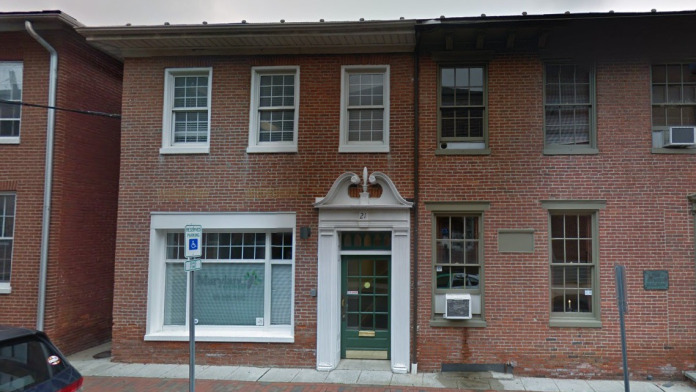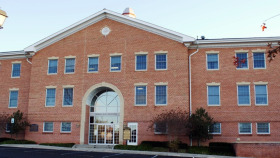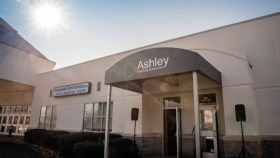Maryland Recovery
21 West Courtland Street
Bel Air, MD 21014

Amenities
- Acupuncture
- Exercise Equipment
- Meditation Room
- Music Therapy
- Private Setting
- Residential Setting
- Wilderness Setting
- Yoga Therapy
Addiction Treatment Programs
- Adult Rehab
- Alcohol Rehab
- Cognitive Behavioral Therapy
- Men's Program
- Opioid Rehab
- Rational Behavior Therapy
- Women's Program
- Young Adult Program
Levels of Care
- Detox Treatment
- Inpatient Addiction Treatment
- Partial Hospitalization
- Outpatient Addiction Treatment
- Aftercare Support
- Co-Occurring Disorders
- Sober Living Home
Accreditations
- NAATP 7495
- SAMHSA Yes
- Joint Commission 546157
Licensing
- State License: Maryland
- State License #: 905167
Insurance
- TRICARE
- Private Insurance Options
- Self-Pay
- Sliding Scale Payment Assistance

Location Details and Hours
Other Facilities Near Bel Air
| Thumbnail | Name | Address | Phone | Treatment | Insurance |
|---|---|---|---|---|---|
| Mosaic Community Services Outpatient Mental Health Clinic |
4 North Avenue Suite 306 |
410-420-7292 | Outpatient | Medicaid | |
 |
Harford County Health Department Bel Air Behavioral Health |
120 South Hays Street |
410-838-1500 | Detox Outpatient | Medicaid |
| Turning Corners Bel Air |
260 Gateway Drive Suite 15 - 16A |
410-893-3896 | Outpatient | N/A | |
 |
Mann House |
14 Williams Street |
410-879-7619 | Inpatient | N/A |
 |
Ashley Addiction Treatment Bel Air Outpatient |
802 Baltimore Pike |
443-760-3456 | Detox Outpatient | Medicaid Private |
 |
Homecoming Project |
P.O. Box 1190 |
410-399-2904 | N/A | N/A |
More Addiction Facilities Near Bel Air
View more listings near Bel Air or search by the letter of cities in Maryland.
Rate by Category and Submit a Review!
Find a Rehab Center
Select a state to find options for rehab centers in your area.
